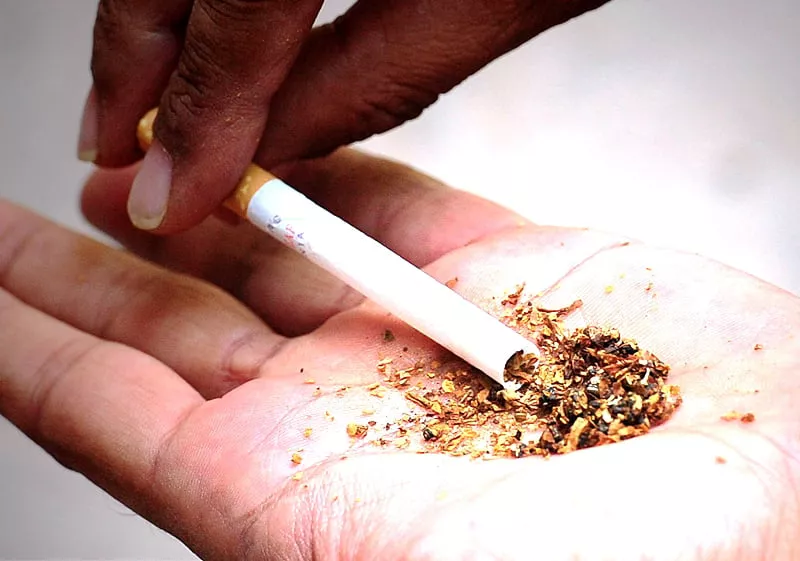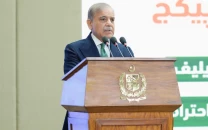Dark Nexus: Drugs Impacting The Youth
The author is permanent faculty at NUST. She can be reached at chivalier37@gmail.com.

Pakistan lies at the tri-junction of South Asia, West Asia, and Central Asia. Its geo-proximity with Afghanistan makes it particularly vulnerable to Afghan-produced drugs. Afghanistan produces nearly ninety percent of the world's opium, the bulk of which is trafficked to the illicit market. Around forty percent of Afghan-produced drugs pass through Pakistan. It is in this vein that Pakistan can rightfully be called a victim and transit state.
Pakistan is a country of over 240 million people, out of which nearly 154 million (sixty-four percent) are in the age bracket of 18–35 years. This youth bulge is a unique demographic dividend that distinguishes Pakistan from its contemporaries. The asset can be converted into a liability if not taken care of well. Drug abuse is one such threat to our youth that needs immediate attention.
Plant-based drugs have been a source of concern for the world community for a long time now. However, the advent of synthetic drugs has further compounded the issue. Designer drugs, party drugs, and the use of psychotropic substances are the new dimensions of threat. The alarming surge in the use of drugs within educational institutions is a serious concern, menacing the fabric of society and the future of Pakistani youth.
The Anti-Narcotics Force (ANF), being a premier counter-narcotics (CN) law enforcement agency (LEA), puts in relentless efforts to save Pakistani youth from the menace of drug abuse. ANF is spearheading a nationwide campaign in concert with the Higher Education Commission (HEC) of Pakistan. The campaign is centered around educational institutions, particularly the universities in Pakistan. Subsequently, the process will be expanded to colleges and schools, involving Provincial Governments, District Administrations, and other LEAs.
The purpose of this counter-narcotics campaign is to sanitize areas around the educational institutions, besides undertaking awareness initiatives and other healthy extracurricular activities within the campuses, involving their faculty, parents, and the students. Concurrently, areas around educational institutions are cleaned of drug pushers and suppliers. Resultantly, sizeable chunks of narcotics have been seized from areas surrounding educational institutions, along with many hundred culprits arrested and a similar number of cases filed, only during 2024. This is one initiative that needs support from all walks of life.
Like all premier CN agencies, ANF has three major undertakings: Demand Supply Reduction (DSR), Drug Demand Reduction (DDR), and International Cooperation (IC). DSR includes all activities pertaining to enforcement, which encompasses acquisition of intelligence on drug traffickers and networks, conduct of kinetic operations to seize drugs and case properties, investigation to reach the sources of supply, and finally, prosecution of filed cases in specially designated counter-narcotics courts. DDR involves awareness campaigns to raise people’s knowledge about the ill effects of drug use. It entails the organization of extracurricular activities like sports, academic measures, and community events. International Cooperation (IC) is the strength of ANF through which it assists the international community in combating drug abuse.
It is a stark reality that despite all the good efforts and best practices of ANF, the threat of drug abuse in educational institutions is increasing. It gets more intricate and complex with the use of social media networks (SMNs), the Dark Web, and cryptocurrencies. In the Mustafa Amir case as well, both the deceased and the main culprit were found to be involved in the sale and supply of weed through SMNs/Dark Web. Students are not only consuming narcotics but are increasingly becoming part of drug trafficking networks, converting a place of learning into a breeding ground for crime. This crisis demands immediate intervention from all stakeholders like teachers, students, parents, law enforcers, and society for safeguarding our youth from this devastating hazard.
ANF is running a well-thought-out CN campaign through educational awareness, targeted operations, and strategic collaborations. Contrarily, however, drug traffickers are also constantly evolving, using advanced tactics such as cryptocurrency transactions and Dark Web dealings to evade arrests. It is time that the unchecked drug involvement of young boys and girls is subjected to individual accountability, parental oversight, societal vigilance, and stringent legal actions to combat the menace. No state institution can undertake this mammoth task singly.
The enormity of the challenge demands a whole-of-the-system and whole-of-the-nation approach to accrue the desired objectives. We need to apply a synergetic and synchronized approach towards this crisis. Parents must keep an eye on the activities of their kids and notice any unusual change in their lifestyles and attitudes. Faculty of educational institutions and their administration should ensure enforcement of well-chalked-out counter-narcotics measures within the premises of their institutions.
CN LEAs must develop their capability with matching resolve to take the bull by the horns. The efficacy of the criminal justice system for conviction of apprehended individuals remains equally important. This is not just an institutional responsibility but a societal duty to ensure that young minds do not fall into the abyss of drug addiction and crime. As a matter of fact, this is the fight for the survival and well-being of Pakistani youth; therefore, all energies must be channelized for its success. A drug-free Pakistan with a happy and healthy young population can guarantee assured success and prosperity.
Dr Sana Imran is permanent faculty at the National University of Science and Technology (NUST). She can be reached at chivalier37@gmail.com.




















COMMENTS
Comments are moderated and generally will be posted if they are on-topic and not abusive.
For more information, please see our Comments FAQ